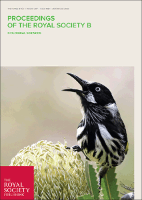
Applied Biological Research
Scope & Guideline
Connecting Research to Real-World Challenges
Introduction
Aims and Scopes
- Biodiversity and Ecology:
Research focusing on the diversity of organisms, their interactions, and the ecological consequences of these interactions, including studies on gut microbiota and environmental assessments. - Plant Biology and Agricultural Science:
Investigations into plant physiology, genetics, and cultivation practices aimed at improving crop yield and resilience, including studies on seed germination, plant regeneration, and the effects of various treatments on plant growth. - Microbiology and Biochemistry:
Studies exploring microbial diversity, antimicrobial properties, and biochemical processes, emphasizing applications in health, agriculture, and environmental remediation. - Phytochemistry and Natural Products:
Research on the chemical composition of plants and their extracts, focusing on their therapeutic potentials, including antioxidant and anticancer activities. - Biotechnology and Genetic Engineering:
Application of biotechnological techniques in agriculture and health, including genetic transformation, molecular characterization, and bioprospecting for novel compounds.
Trending and Emerging
- Climate Change Resilience in Agriculture:
Research addressing the impacts of climate change on crop production and strategies for enhancing resilience, such as nutrient-specific modulation and use of biostimulants. - Health and Disease Management:
An increase in studies focusing on the health impacts of various substances, including antimicrobial resistance and the potential therapeutic effects of natural compounds. - Sustainable Practices and Environmental Remediation:
Growing interest in bioremediation, phytoremediation, and the use of bio-control agents to manage pests and diseases sustainably. - Innovative Biotechnological Applications:
Emerging themes around the application of advanced biotechnologies, such as genetic engineering and bioinformatics, to improve agricultural and health outcomes. - Microbiome Studies:
An upward trend in research examining the role of microbiomes in health, agriculture, and ecosystems, reflecting a broader interest in microbial interactions and their implications.
Declining or Waning
- Traditional Ethnobotany:
Research focusing on traditional medicinal uses of plants has decreased, possibly due to a shift towards more empirical and experimental approaches in plant studies. - Conventional Agricultural Practices:
Studies centered on traditional agricultural methods are becoming less common as more researchers explore sustainable practices and innovations in agriculture. - Basic Ecological Surveys:
While biodiversity is still a focus, basic ecological surveys without applied outcomes are less prevalent, indicating a move towards more applied ecological research.
Similar Journals

Vestnik Tomskogo Gosudarstvennogo Universiteta-Biologiya
Empowering Researchers Through Open Access to Vital DiscoveriesVestnik Tomskogo Gosudarstvennogo Universiteta-Biologiya is a prominent peer-reviewed journal dedicated to advancing knowledge in the fields of Agricultural and Biological Sciences, Biochemistry, and Environmental Science, published by TOMSKIJ GOSUDARSTVENNYI UNIV in the Russian Federation. With an ISSN of 1998-8591 and an E-ISSN of 2311-2077, this journal serves as a vital platform for researchers to disseminate findings that encompass diverse biological disciplines. Although currently categorized in the fourth quartile across several fields, including Agricultural and Biological Sciences (Q4) and Environmental Science (Q4), the journal is committed to improving its academic impact and visibility. Its publication spectrum includes significant contributions from both local and international scholars, fostering a rich exchange of ideas and research methodologies. Access to the journal’s content is unrestricted, providing valuable resources for students, professionals, and researchers alike. As the journal converges its focus from 2018 to 2024, it aims to enhance its academic stature while contributing rigorously to contemporary biological research.

Open Life Sciences
Fostering Innovation in Life Sciences ResearchOpen Life Sciences is a distinguished open-access journal published by DE GRUYTER POLAND SP Z O O, dedicated to advancing research across diverse disciplines in the life sciences. Since its inception in 2014 and transitioning to open access in 2015, the journal has become a pivotal platform for researchers, fostering the dissemination of high-quality scientific work while ensuring that valuable findings are freely accessible to the global community. With an impressive categorization into Q2 in Agricultural and Biological Sciences and Q3 in several other fields including Biochemistry and Immunology as of 2023, Open Life Sciences promotes innovation and knowledge sharing across its broad spectrum of topics. The journal's commitment to excellence is reflected in its competitive Scopus rankings, making it an essential resource for professionals and students alike who are keen to stay at the forefront of life sciences research.

BioTech
Empowering Researchers Through Open Access KnowledgeBioTech is a forward-thinking academic journal published by MDPI, specializing in the dynamic fields of applied microbiology, biotechnology, biochemistry, bioengineering, and biomedical engineering. Established for promoting impactful research from 2021 to 2024, this journal aims to bridge the gap between laboratory findings and practical applications, serving as a vital resource for researchers, practitioners, and students alike. With its Open Access model, BioTech ensures that groundbreaking innovations are freely available to the global community, fostering collaboration and knowledge transfer across disciplines. In the 2023 rankings, BioTech holds a strong position in Q2 and Q3 quartiles across various categories, reflecting its commitment to high-quality research output. Being indexed in renowned databases, the journal enhances its visibility and reach, making it a preferred platform for sharing transformative ideas and discoveries in biotechnology and related domains. Set against the backdrop of Switzerland’s thriving research environment, BioTech is poised to become an essential resource in the rapidly evolving landscape of life sciences.

PROCEEDINGS OF THE ROYAL SOCIETY B-BIOLOGICAL SCIENCES
Exploring the Frontiers of Life SciencesPROCEEDINGS OF THE ROYAL SOCIETY B-BIOLOGICAL SCIENCES, published by the esteemed Royal Society, stands as a premier platform for disseminating cutting-edge research in the fields of Biological Sciences. With an impressive impact factor reflective of its high citation rates and scholarly contributions, this journal encompasses a wide array of disciplines, including Agricultural and Biological Sciences, Biochemistry, Genetics and Molecular Biology, Environmental Science, and Immunology and Microbiology, consistently ranking in the Q1 category across these fields. Since its inception in 1946, it has been committed to advancing our understanding of biological systems and informing evidence-based practices. Researchers and academics can submit their work without the Open Access barrier, thereby maintaining the integrity of the disciplinary discourse while providing comprehensive insights. The journal's location in the United Kingdom also positions it at the heart of global scientific innovation, making it a vital resource for professionals and students alike who are eager to explore the latest trends and breakthroughs in the biological sciences.

Journal of Biological Research-Bollettino della Societa Italiana di Biologia Sperimentale
Empowering Global Research in Plant ScienceThe Journal of Biological Research-Bollettino della Societa Italiana di Biologia Sperimentale is a premier peer-reviewed journal published by PAGEPRESS PUBL, focusing on a diverse array of topics within the broad field of biological research. Established as an Open Access journal since 2009, it facilitates the dissemination of scientific knowledge across the globe, enhancing visibility and accessibility for researchers, professionals, and students alike. With an ISSN of 1826-8838 and E-ISSN 2284-0230, this journal serves as a platform for innovative studies in Biochemistry, Genetics, and Molecular Biology, with a growing emphasis on Plant Science. Although currently categorized in the Q4 quartile for various sub-disciplines, the journal is dedicated to fostering interdisciplinary collaboration and advancing research quality. The latest Scopus rankings indicate a burgeoning presence in the academic community, positioning itself at significant ranks within the fields it covers. With publication coverage extending from 2011 to 2024, the journal aims to push the frontiers of biological research while adapting to the evolving demands of the scientific community.

PERIODICUM BIOLOGORUM
Connecting Ideas Across Biological FrontiersPERIODICUM BIOLOGORUM is a well-established interdisciplinary journal published in Croatia that focuses on advancing the fields of agricultural and biological sciences, biochemistry, genetics, and molecular biology, along with general medicine. With its roots dating back to 1980, the journal has been an essential platform for the dissemination of original research, reviews, and theoretical studies, fostering collaboration and dialogue among researchers within these diverse areas. While currently holding a Q4 quartile ranking in several categories, including agricultural and biological sciences, biochemistry, and general medicine, it provides a significant opportunity for authors seeking to contribute to the body of knowledge in these sectors. Although Open Access options are not available, the journal's rich history and commitment to quality scholarship make it a valuable resource for professionals, researchers, and students alike, aiming to stay informed about current trends and advancements in biological research and its applications.

PHYSIOLOGY AND MOLECULAR BIOLOGY OF PLANTS
Enhancing Crop Production with Cutting-Edge ResearchPHYSIOLOGY AND MOLECULAR BIOLOGY OF PLANTS, published by SPRINGER, is a vital journal focused on the advancing field of plant science. Featuring research that spans physiology, molecular biology, and their applications in agriculture, this journal is pivotal for academics, professionals, and students keen on understanding plant processes and enhancing crop production. With an ISSN of 0971-5894 and an E-ISSN of 0974-0430, this journal is recognized for its scholarly significance, ranking in the Q3 category in Molecular Biology, Q2 in Physiology, and Q1 in Plant Science as of 2023. The journal maintains a strong position in the Scopus rankings, with notable percentile rankings including 87th in Plant Science. Established in 2000, this publication aims to foster the dissemination of cutting-edge research by providing a platform for open discussion and knowledge sharing about plant physiology and molecular mechanisms. While it does not currently offer open access options, its comprehensive studies and reviews serve as an essential resource for enhancing our understanding of plant biology.

BIOLOGY BULLETIN
Connecting Scholars to the Heart of Biological Discoveries.BIOLOGY BULLETIN is a prominent academic journal published by PLEIADES PUBLISHING INC, dedicated to advancing the fields of Agricultural and Biological Sciences as well as Biochemistry, Genetics, and Molecular Biology. With an ISSN of 1062-3590 and E-ISSN of 1608-3059, the journal has been a vital resource for researchers and professionals since its commencement in 1996. Located in the United States, BIOLOGY BULLETIN operates within a highly competitive academic landscape, achieving a 2023 ranking in the Q3 quartile for Agricultural and Biological Sciences and Q4 for Biochemistry, Genetics, and Molecular Biology, highlighting its commitment to delivering impactful research despite its challenges. Researchers seeking to publish their findings will find a platform for significant insights, as reflected in its Scopus rankings, where it stands at #183 and #199 out of 221 in its respective categories, showcasing opportunities for growth and visibility. While currently not an open-access publication, BIOLOGY BULLETIN plays a crucial role in facilitating scholarly communication and fostering an understanding of biological sciences, making it an essential read for academics, professionals, and students alike.

Plants-Basel
Exploring the intricate web of plant interactions.Plants-Basel is a distinguished open access journal published by MDPI since 2012, offering a comprehensive platform for researchers and professionals in the field of ecology, plant science, and evolutionary biology. Based in Switzerland, this journal has established itself as a leader in disseminating high-quality research, evident through its impressive rankings in multiple categories, including Q1 in Ecology and Plant Science for 2023. With a substantial impact factor and a dedicated focus on advancing our understanding of plant interactions, ecosystems, and sustainable practices, Plants-Basel is vital for scholars seeking to contribute to these critical fields. The journal's commitment to open access enhances visibility and accessibility, facilitating the widespread sharing of knowledge essential for addressing contemporary ecological challenges.

Biologia Futura
Fostering Collaboration for a Sustainable FutureBiologia Futura, an esteemed journal published by SPRINGER HEIDELBERG, serves as a vital platform for researchers and professionals in the fields of Agricultural and Biological Sciences, as well as Biochemistry, Genetics, and Molecular Biology. Established in Hungary, this journal has been at the forefront of scientific inquiry since its inception in 2019 and continues to contribute significantly to advancing knowledge through rigorous peer-reviewed articles. With current rankings placing it in the second quartile for Agricultural and Biological Sciences and third quartile for Biochemistry, Genetics, and Molecular Biology according to Scopus metrics, it reflects a robust academic quality and reach. Scholars are encouraged to share their original research, reviews, and innovations that intersect these dynamic fields. Although not an open access publication, Biologia Futura ensures wide dissemination of high-impact research from its notable address at Tiergartenstraße 17, D-69121 Heidelberg, Germany, aiming to foster collaboration and discovery within the global scientific community.